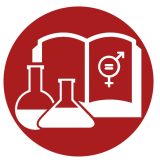There is limited awareness, consideration or integration of sex/gender analysis in research across various disciplines.
Developing introductory and advanced courses in all Schools on sex and gender variables in Research: a postgraduate level online module on gender and research
Problem (evidence)
Aims/objectives
To develop an online module for postgraduate students, researchers and interested undergraduate students to provide training in understanding the importance of integrating sex/gender analysis into research and how to do it. As part of this module, participants will also be trained in getting multiple disciplinary perspectives (sociology, history, engineering, biomedical sciences, economics, physics, applied linguistics) on scientific research and gender.
Resources
Good connections and liaising with university (teaching) staff from different departments and universities with expertise on the role of gender in research.
Excellent communication skills.
Funding needs to be allocated if external staff is going to be recruited to develop teaching material.
Brief outcomes
The module is available internally and externally to postgraduate students and early carer researchers. The internal student community is more aware of sex/gender analysis in research and many now consider such variables in their research projects.
Key area
Integration of sex and gender dimension in teaching curricula
Type of action
Training
Organization
University of Warwick
Higher education institution
Action level of implementation
Students and researchers
Implementation
Phase 1: Literature review
A literature review was conducted to assess relevant material and develop an outline for the curriculum.
Phase 2: Testing the ground
A 2-hour workshop on objectivity and bias including sex/gender in research was organised and delivered to 40 doctoral candidates from the faculty of science. The advertised summary of the workshop was:
In this workshop we will discuss how science is seen and framed and the biases that can be implicit in the scientific research process. We will also talk about how rethinking research design and methodologies can lead to innovative outputs. There will be a couple of practical exercises and discussions.
Feedback from Warwick students: The students in general enjoyed the workshop, though there was a lot of resistance to accepting that the institutions and cultures of scientific research are not objective. A key issue for the next phase of the project was to recognise that this was largely due to different definitions of science.
Phase 3: Module design
A module was created comprised of 9 sessions (an introduction and eight 30-minute podcasts plus individual work) with additional group tasks and associated individual work relating to participant’s own projects. All sessions are tailored to show the benefits of considering sex/gender in research in different fields.
The module is comprised of the following sessions:
- ‘Why a module on gender and science’: introduction to the module, designed and delivered by PLOTINA team gender experts
- ‘Sociology and Gender: Gender and Science: scientific facts and fictions of gender’, designed and delivered by a sociologist
- ‘History and Gender: Gender and the history of science’, designed and delivered by a historian
- ‘Biomedical sciences and gender’, designed and delivered by an expert from the Life sciences/Medicine
- ‘Applied Linguistics and Gender: Gender and academic research: a linguistic perspective’, designed and delivered by a discourse analyst.
- ‘Gender and physics’, designed and delivered by a physicist
- ‘Behavioural science, neuroscience and Gender: Seven things to know about sex, gender, brains and behaviour’, designed and delivered by a psychologist
- Gender and economics: Publishing while female, are women held to higher standards: evidence from peer review, delivered by an economist
- Gender and statistics, delivered by a gender and diversity academic specialised in statistics
- ‘Queer Pedagogy and gender diversity’ , designed and delivered by a sociologist.
Most of the sessions have integrated a few exercises/questions to enable group discussions within a classroom and/ or facilitate reflection to the viewers.
Phase 4: Applications for a flexible online module
Once the sessions have been uploaded, they can be used together as an online module within degree programmes. However, each one of them can be utilised as part of a lecture or a seminar or ‘a reading list’ within different disciplinary programmes and modules. If local rules require credit points for a module, then the above programme can be supplemented by an individual essay on the significance and impact of the module material for their discipline and a student’s own past, current or planned research. At our institution, the sustainability route is to transfer the module to the Institute for Advanced Teaching and Learning to run it for the wider University community.
Challenges
It can be challenging to identify staff who integrate sex and gender in their research in STEM fields.
The action is time-consuming so it might be challenging for full-time staff recruited to manage workload.
Coping strategies
To identify potential contributors, we made use of personal contacts across departments and searched the departments’ website for staff profiles.
Potential contributors should be contacted and deadlines should be set well in advance.
A short technical guide was created to inform contributors how to develop online lectures/podcasts using powerpoint (to be attached).
Tips/strategies – Lessons learnt
Identify possible contributors and contact them well in advance.
Be clear about the aims of the module and arrange initial meetings to discuss it.
Provide clear guidelines as to how to record their presentations.
What did not work
Our initial plan of sessions/contributions had to change due to the challenges of identifying staff from certain departments who would be willing and had the time to contribute to the module.


